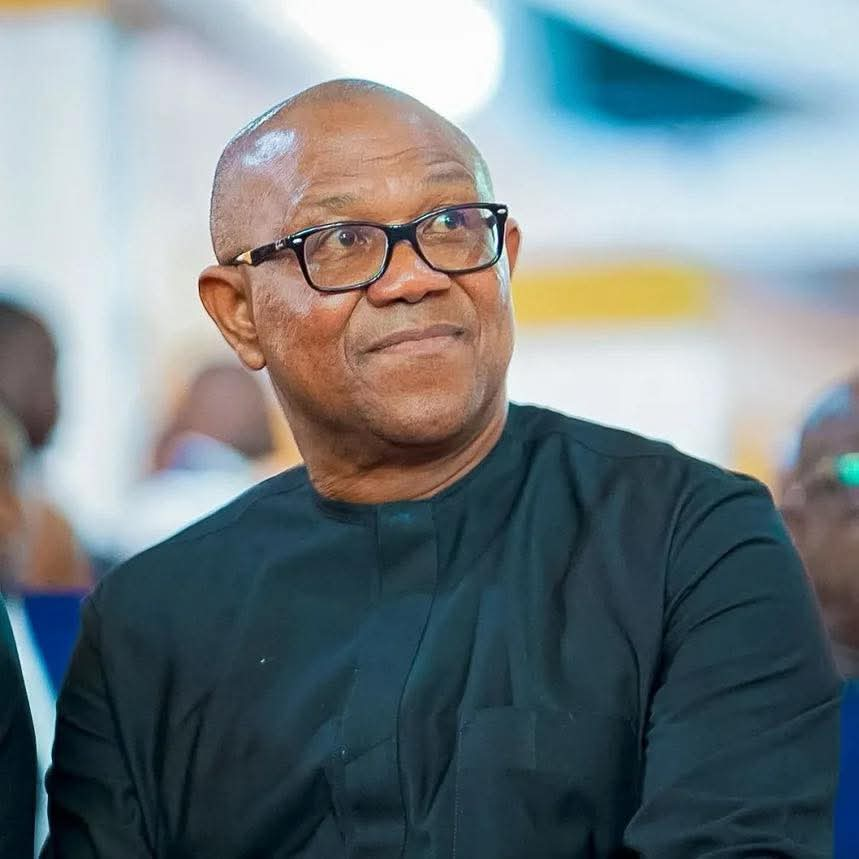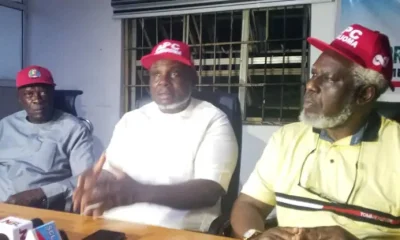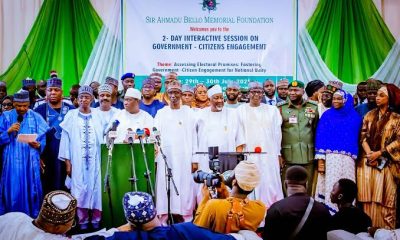Politics
“Nigeria is bleeding”: Obi slams government, calls for urgent security action

- /home/ariseafr/public_html/wp-content/plugins/mvp-social-buttons/mvp-social-buttons.php on line 27
https://ariseafricanews.com/wp-content/uploads/2025/09/FB_IMG_1757267497689-859x600.jpg&description=“Nigeria is bleeding”: Obi slams government, calls for urgent security action', 'pinterestShare', 'width=750,height=350'); return false;" title="Pin This Post">
- Share
- Tweet /home/ariseafr/public_html/wp-content/plugins/mvp-social-buttons/mvp-social-buttons.php on line 72
https://ariseafricanews.com/wp-content/uploads/2025/09/FB_IMG_1757267497689-859x600.jpg&description=“Nigeria is bleeding”: Obi slams government, calls for urgent security action', 'pinterestShare', 'width=750,height=350'); return false;" title="Pin This Post">
Former Labour Party presidential candidate Peter Obi has raised fresh alarm over Nigeria’s worsening security crisis, describing the wave of killings, abductions, and attacks across the country as “a full-blown security emergency” and calling for an urgent national declaration of war on insecurity.
In a strongly worded statement on Sunday, Obi lamented the bloodshed that claimed over 100 lives across several states over the weekend, warning that the nation risks descending into complete anarchy if decisive action is not taken immediately.“Bloody Weekend: over 100 killed in Borno, Sokoto, Katsina, Edo. This grim headline captures the frightening reality reflected in our weekend papers,” Obi said, reacting to multiple reports of coordinated attacks by insurgents, bandits, and kidnappers.
The weekend violence saw eight officers of the Nigeria Security and Civil Defence Corps (NSCDC) ambushed and killed, a Chinese expatriate abducted in Edo State, passengers kidnapped along the Benin–Iyere–Oluku road, and five soldiers alongside 58 civilians slaughtered in Borno State.
In Katsina and Sokoto, several communities were also left devastated by fresh attacks linked to armed gangs.Obi described the developments as “not isolated tragedies” but “stark evidence that Nigeria is in the grip of a full-blown security emergency.”
He extended his sympathies to grieving families and praised the bravery of the security operatives who lost their lives defending the nation.
“My deepest condolences go to the families of our fallen heroes. Their courage reminds us that we still have men and women who are willing to risk everything for our safety. Their killers must be swiftly apprehended and brought to justice. Their sacrifices must never be forgotten,” Obi stated.The former Anambra State governor condemned what he termed the federal government’s “business-as-usual approach” to security despite casualty figures comparable to those of countries in active war zones.
“When over 100 Nigerians are killed in a single weekend, our casualty figures rival those of countries officially at war. This is no longer business as usual. It is time to declare a national war on insecurity — to mobilise every resource, every agency, every state, and to suspend all distractions while we begin the process of reclaiming our nation from lawlessness,” he said.
Obi also criticized President Bola Tinubu’s frequent foreign trips, insisting that leadership in times of crisis must be seen and felt at home.
“Even foreign trips by government officials should be put on hold until the situation is brought under control. True leadership must be seen at home, personally coordinating the war against insecurity. Junketing around the world under the pretence of wooing investors, while the country bleeds, is to live in denial. Investors will not come into a war zone,” he said.The former presidential candidate warned that unchecked insecurity could push Nigeria towards state failure, drawing parallels with nations like Somalia and Libya that plunged into chaos after failing to address similar threats.
“No nation can prosper while its citizens live under siege. History shows that insecurity is the quickest path to national collapse — Somalia and Libya stand as painful warnings,” Obi noted.Calling for immediate and coordinated national action, Obi urged security agencies, state governments, and citizens to unite in combating rising insurgency, terrorism, and kidnapping across the country.
“We must act now, with urgency and courage, to prevent a total descent into anarchy and rebuild Nigeria into a safe, secure, and productive nation for all,” he concluded, reiterating his popular campaign mantra that “a new Nigeria is possible.”
Obi’s comments come amid growing public outrage over the federal government’s handling of the nation’s security challenges.
According to data from security trackers, over 4,500 Nigerians have been killed and thousands kidnapped in violent attacks since the beginning of 2025, with the North-East, North-West, and parts of the South-South remaining epicentres of unrest.
The calls for urgent action are expected to pile further pressure on President Tinubu’s administration, which has repeatedly promised to “restore peace and stability” but faces mounting criticism over its security strategy.






















